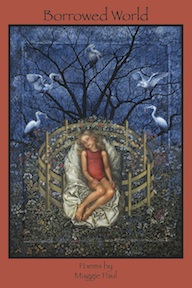 Highlights of Poetry.
Highlights of Poetry.
 Index of poetry.
Index of poetry.
 How to Write Poetry.
How to Write Poetry.
 Haibun.
Haibun.
 Haiku.
Haiku.
 Hay(na)ku.
Hay(na)ku.
 Rengay.
Rengay.
 Tanka.
Tanka.
 Concrete.
Concrete.
 Ghazal.
Ghazal.
 Lai.
Lai.
 Pantoum.
Pantoum.
 Prose poem.
Prose poem.
 Rondeau.
Rondeau.
 Rubáiyát.
Rubáiyát.
 Sestina.
Sestina.
 Skaldic verse.
Skaldic verse.
 Sonnet.
Sonnet.
 Terza rima.
Terza rima.
 Triolet.
Triolet.
 Tritina.
Tritina.
 Villanelle.
Villanelle.
 Adam Zagajewski.
Adam Zagajewski.
 Aleda Shirley.
Aleda Shirley.
 Anne Carson.
Anne Carson.
 Barbara Bloom.
Barbara Bloom.
 Bashō.
Bashō.
 The Beowulf Poet.
The Beowulf Poet.
 Billy Collins.
Billy Collins.
 Billy Collins exercise.
Billy Collins exercise.
 Snorri's Edda.
Snorri's Edda.
 Carl Dennis.
Carl Dennis.
 Charles Atkinson.
Charles Atkinson.
 Corey Marks.
Corey Marks.
 Franz Wright.
Franz Wright.
 Galway Kinnell.
Galway Kinnell.
 Gary Young.
Gary Young.
 The Gawain Poet.
The Gawain Poet.
 J. Zimmerman.
J. Zimmerman.
 Jack Gilbert.
Jack Gilbert.
 Jane Hirshfield.
Jane Hirshfield.
 Jorie Graham.
Jorie Graham.
 Karen Braucher.
Karen Braucher.
 Karl Shapiro.
Karl Shapiro.
 Kay Ryan.
Kay Ryan.
Laureate Poets:
 Britain;
Britain;
 USA.
USA.
 Louise Glück.
Louise Glück.
 Len Anderson.
Len Anderson.
 Li-Young Lee.
Li-Young Lee.
 Linda Pastan.
Linda Pastan.
 Nordic Skalds.
Nordic Skalds.
 Pulitzer Poetry Prize (U.S.A).
Pulitzer Poetry Prize (U.S.A).
 Richard Hugo.
Richard Hugo.
 Robert Bly.
Robert Bly.
 Sara Teasdale.
Sara Teasdale.
 Shiki.
Shiki.
 Snorri's Edda.
Snorri's Edda.
 Stephen Dunn.
Stephen Dunn.
 Ted Kooser.
Ted Kooser.
 W.S. Merwin.
W.S. Merwin.
